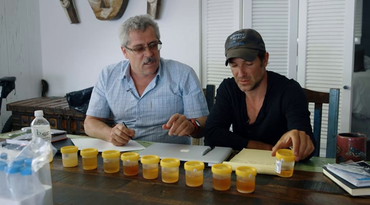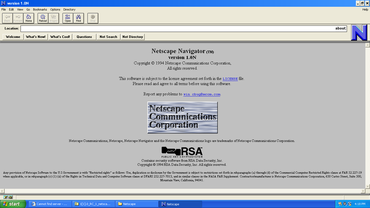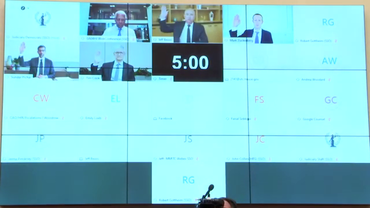Through the mousehole
 It's been obvious for a long time that if you want to study a thoroughly dysfunctional security system you could hardly do better than doping control in sports. Anti-doping has it all: perverse incentives, wrong assumptions, conflicts of interest, and highly motivated opponents. If you doubt this premise, consider: none of the highest-profile doping cases were caught by the anti-doping system. Lance Armstrong (2010) was outed by a combination of dogged journalistic reporting by David Walsh and admissions by his former teammate Floyd Landis; systemic Russian doping (2014) was uncovered by journalist Hajo Seppelt, who has also broadcast investigations of China, Kenya, Germany, and weightlighting; BALCO (2002) was exposed by a coach who sent samples to the UCLA anti-doping lab; and Willy Voet (1998), soigneur to the Festina cycling team, was busted by French Customs.
It's been obvious for a long time that if you want to study a thoroughly dysfunctional security system you could hardly do better than doping control in sports. Anti-doping has it all: perverse incentives, wrong assumptions, conflicts of interest, and highly motivated opponents. If you doubt this premise, consider: none of the highest-profile doping cases were caught by the anti-doping system. Lance Armstrong (2010) was outed by a combination of dogged journalistic reporting by David Walsh and admissions by his former teammate Floyd Landis; systemic Russian doping (2014) was uncovered by journalist Hajo Seppelt, who has also broadcast investigations of China, Kenya, Germany, and weightlighting; BALCO (2002) was exposed by a coach who sent samples to the UCLA anti-doping lab; and Willy Voet (1998), soigneur to the Festina cycling team, was busted by French Customs.
I bring this up - again - because two insider tales of the Russian scandal have just been published. The first, The Russian Affair, by David Walsh, tells the story of Vitaly and Yuliya Stepanov, who provided Seppelt with material for The Secrets of Doping: How Russia Makes Its Winners (2014); the second, The Rodchenkov Affair, is a first-person account of the Russian system by Grigory Rodchenkov, from 2006 to 2015 the director of Moscow's testing lab. Together or separately, these books explain the Russian context that helped foster its particular doping culture. They also show an anti-doping system that isn't fit for purpose.
The Russian Affair is as much the story of the Stepanovs' marriage as of contrasting and complementary views of the doping system. Vitaly was an idealistic young recruit at the Russian Anti-Doping Agency; Yuliya Rusanova was an aspiring athlete willing to do anything to escape the desperate unhappiness and poverty of her native area, Kursk. While she lectured him about not understanding "the real world", he continued hopefully writing letters to contacts at the World Anti-Doping Agency describing the violations he was seeing. Yuliya comes to see the exploitation of a system that protects winners but lets others test positive to make the system look functional. Under Vitaly's guidance, she records the revealing conversations that Seppelt's documentary featured. Rodchenkov makes a cameo appearance; the Stepanovs believed he was paid to protect specific athletes from positive tests.
In the vastly more entertaining The Rodchenkov Affair, Rodchenkov denies receiving payment, calling Yuliya a "has-been" he'd never met. Instead, Rodchenkov describes developing new methods of detecting performance-enhancing substances, then finding methods to beat those same tests. If the nearest analogue to the Walsh-described Stepanovs' marriage is George and Kellyanne Conway, Rodchenkov's story is straight out of Philip K. Dick's A Scanner Darkly, in which an undercover narcotics agent is assigned to spy on himself.
Russia has advantages for dopers. For example, its enormous land mass allows athletes to sequenster themselves in training camps so remote they are out of range for testers. More important may be the pervasive sense of resignation that Vitaly Stepanov describes as his boss slashes WADA's 80 English pages of anti-doping protocols to ten in Russian translation because various aspects are "not possible to do in Russia". Rodchenkov, meanwhile, plans the Sochi anti-doping lab that the McLaren report later made famous for swapping positive samples for pre-frozen clean ones through a specially built "mousehole" operated by the FSB.
If you view this whole thing as a security system, it's clear that WADA's threat model was too simple, something like "athletes dope". Even in 1988, when Ben Johnson tested positive at the Seoul Olympics, it was obvious that everyone's interests depended on not catching star athletes. International sports depend on their stars - as do their families, coaches, support staff, event promoters, governments, fans, and even other athletes, who know the star attractions make their own careers possible. Anti-doping agencies must thread their way through this thicket.
In Rodchenkov's description, WADA appears inept, even without its failure to recognize this ecosystem. In one passage, Rodchenkov writes about the double-blind samples the IOC planted from time to time to test the lab: "Those DBs were easily detectable because they contained ridiculous compounds...which were never seen in doping control routine analysis." In another, he says: "[WADA] also assumed that all accredited laboratories were similarly competent, which was not the case. Some WADA-accredited laboratories were just sloppy, and would reach out to other countries' laboratories when they had to process quality control samples to gain re-accreditation."
Flaws are always easy to find once you know they're there. But WADA was founded in 1999. Just six years earlier, the opening of the Stasi records exposed the comprehensive East German system. The possibility of state involvement should have been high on the threat list from the beginning, as should the role of coaches and doctors who guide successive athletes to success.
It's hard to believe this system can be successfully reformed. Incentives to dope will always be with us, just as it would be impossible to eliminate all incentives to break into computer systems. Rodchenkov, who frequently references Orwell's 1984, insists that athletes dope because otherwise their bodies cannot cope with the necessary training, which he contends is more physically damaging than doping. This much is clear: a system that insists on autonomy while failing to fulfill its most basic mission is wrong. Small wonder that Rodchenkov concludes that sport will never be clean.
Illustrations: Grigory Rodchenkov and Bryan Fogel in Fogel's documentary, Icarus.
Wendy M. Grossman is the 2013 winner of the Enigma Award. Her Web site has an extensive archive of her books, articles, and music, and an archive of earlier columns in this series. Stories about the border wars between cyberspace and real life are posted occasionally during the week at the net.wars Pinboard - or follow on Twitter.


